Assertions are a fundamental tool in software development, especially when it comes to testing code. They allow you to ensure that certain conditions are met before the code continues to execute. In this tutorial, you will learn how to use assertions in Python to make your programs more robust and detect errors early.
Key insights
- Assertions help verify conditions during program execution.
- Using assertions can ease debugging.
- The unit testing framework in Python provides a flexible environment for testing code.
Basics of Assertions
Assertions in Python are simple statements that are checked during program execution. If an assertion fails, an error is triggered. This is especially useful to ensure that your code behaves as expected.
Here is a simple example: You can use assert to ensure that the result of a calculation is correct. If the calculation of x + y does not yield the expected result, the assertion will throw an error message.
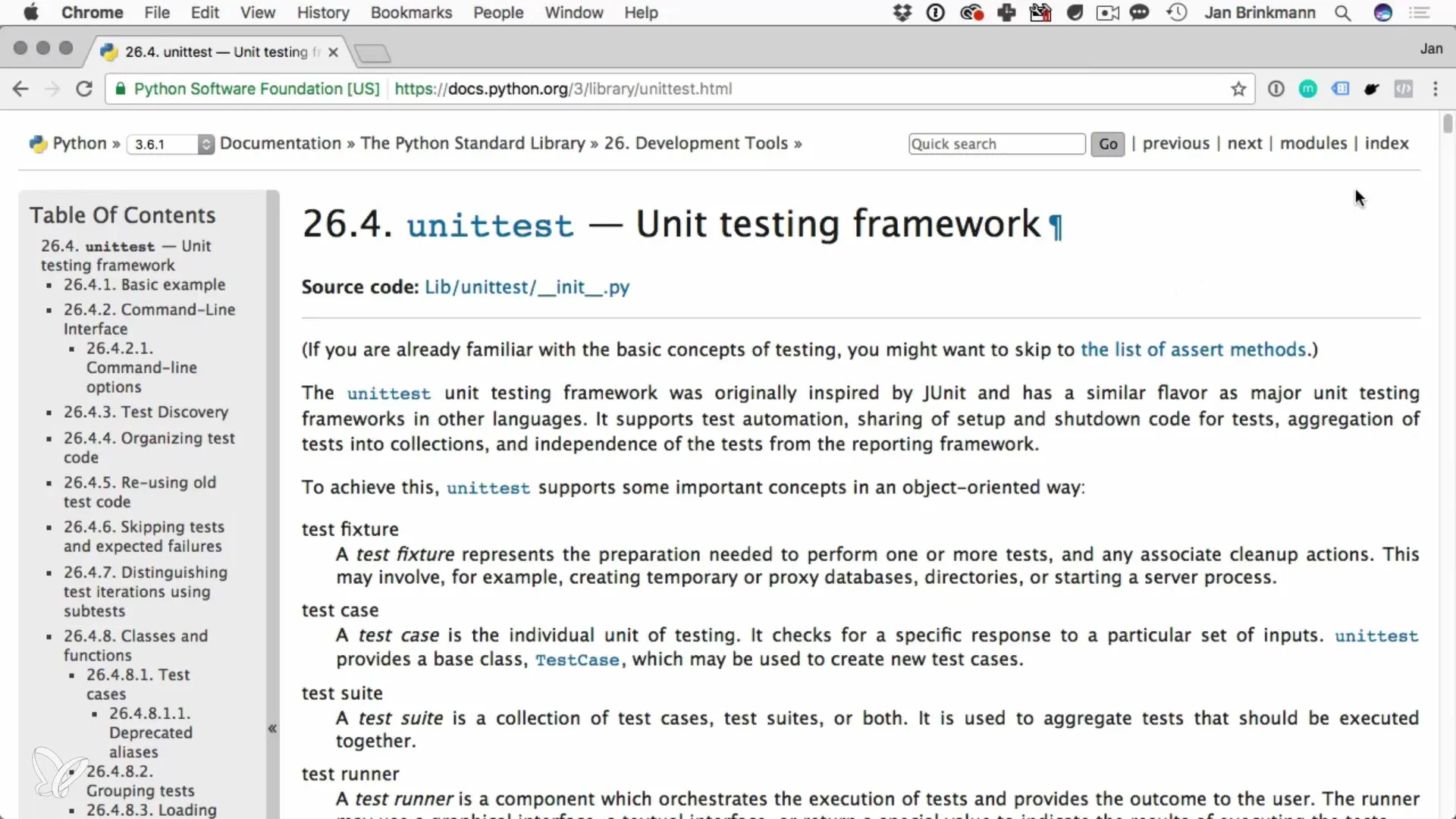
Creating a Test Module
To work with assertions, we begin by creating a test module. In the first step, you define the initial values and create a code block for the calculations you want to test.
You have two variables, x and y, for which you perform basic arithmetic operations such as addition, subtraction, and multiplication. These arithmetic operations are organized in their own function, allowing you to easily call them as needed.
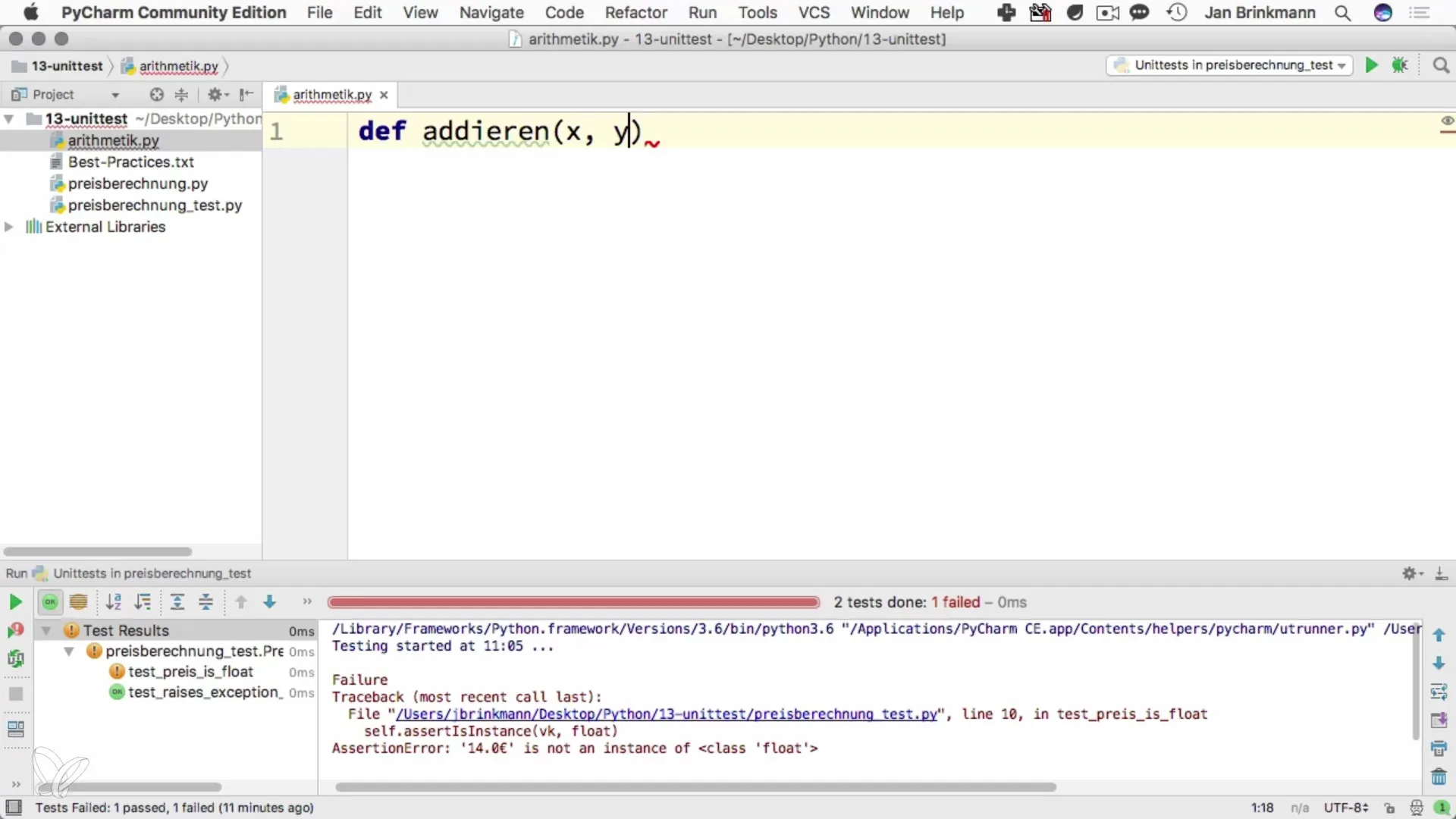
Writing the Tests
Now comes the exciting part: writing the tests. Here, you use Python's unittest module to create a test class that is derived from unittest.TestCase. This gives you access to a variety of methods to write your assertions.
First, you import the unittest module and your functionality from the arithmetic module. In your test class, you then define the test methods where you use assertions to verify the functionality of your calculation functions.
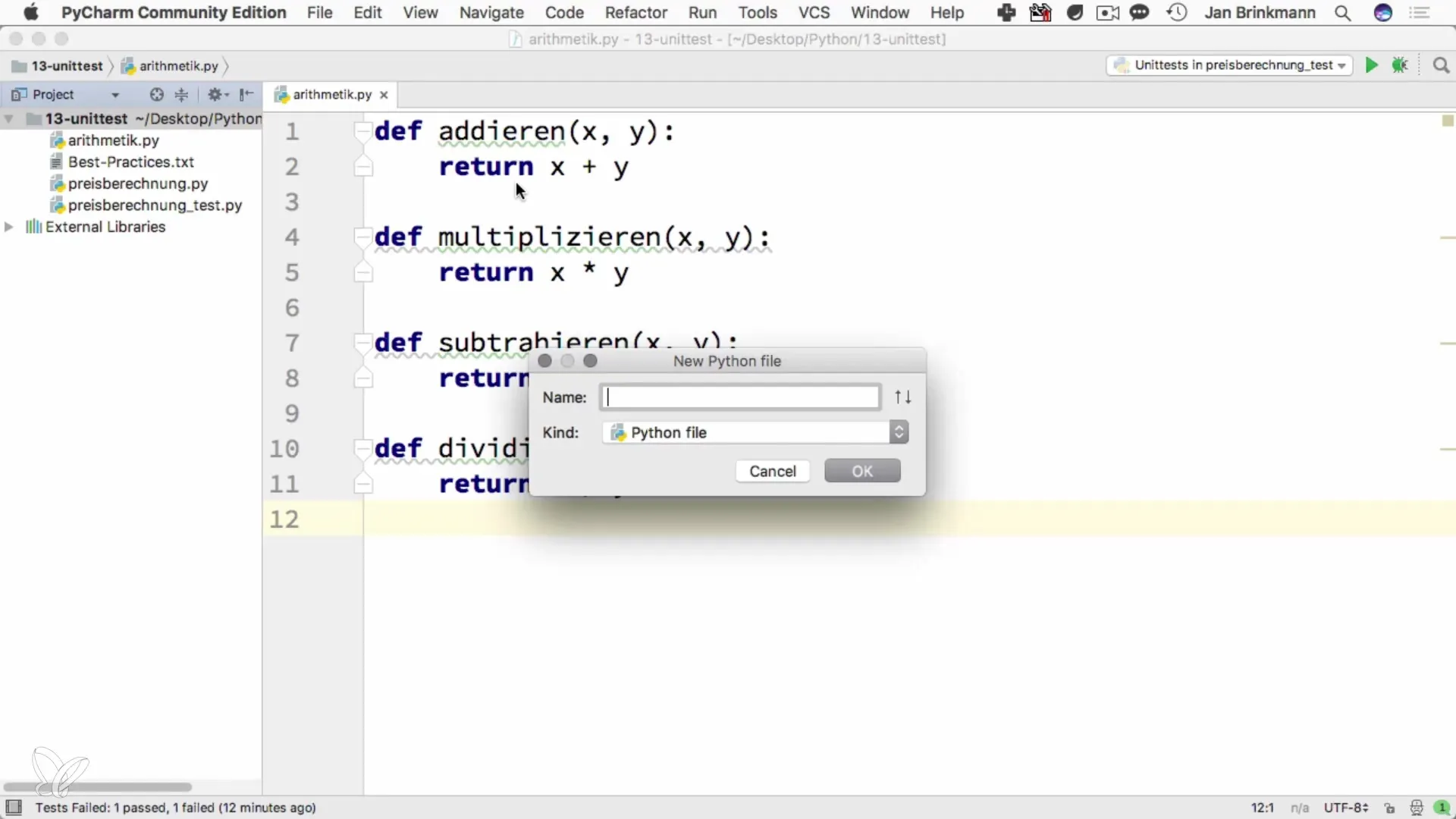
Running the Tests
After writing your tests, Python typically runs them automatically when you start the script. You can see the results directly in the terminal. Every time an assertion is checked, the system verifies whether the condition is met. If the tests fail, you receive a detailed error message.
It is wise to write several tests for different use cases to ensure that your code is robust against various inputs.
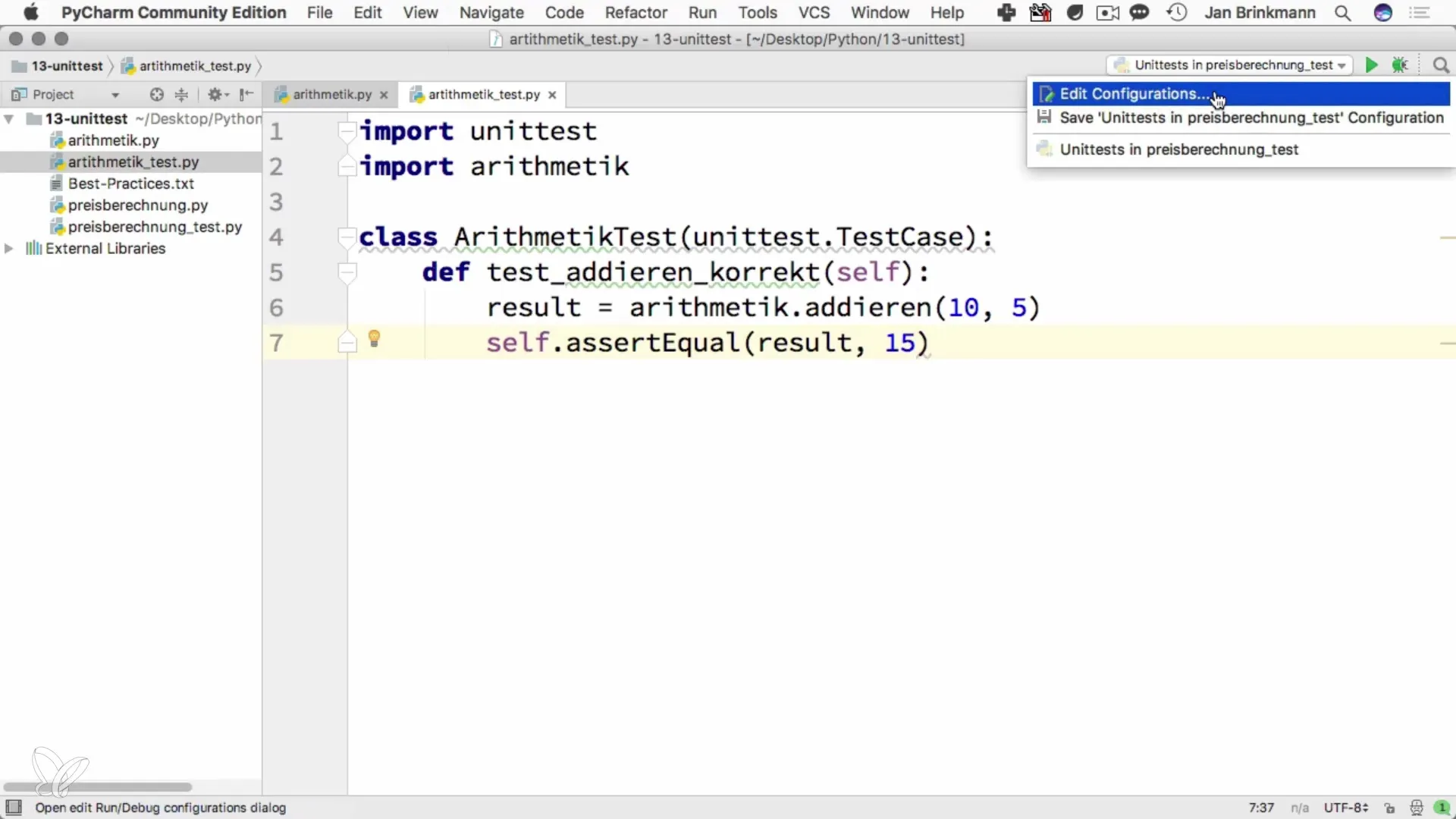
Error Handling with Assertions
A particularly useful feature of assertions is the ability to test for error conditions. You can ensure that your functions handle errors correctly by using asserts in combination with try and except.
For example, if you want to ensure that your addition does not throw exceptions, you sanitize the input values and check whether the result is returned as expected. If not, you can trigger an appropriate error with assertions.
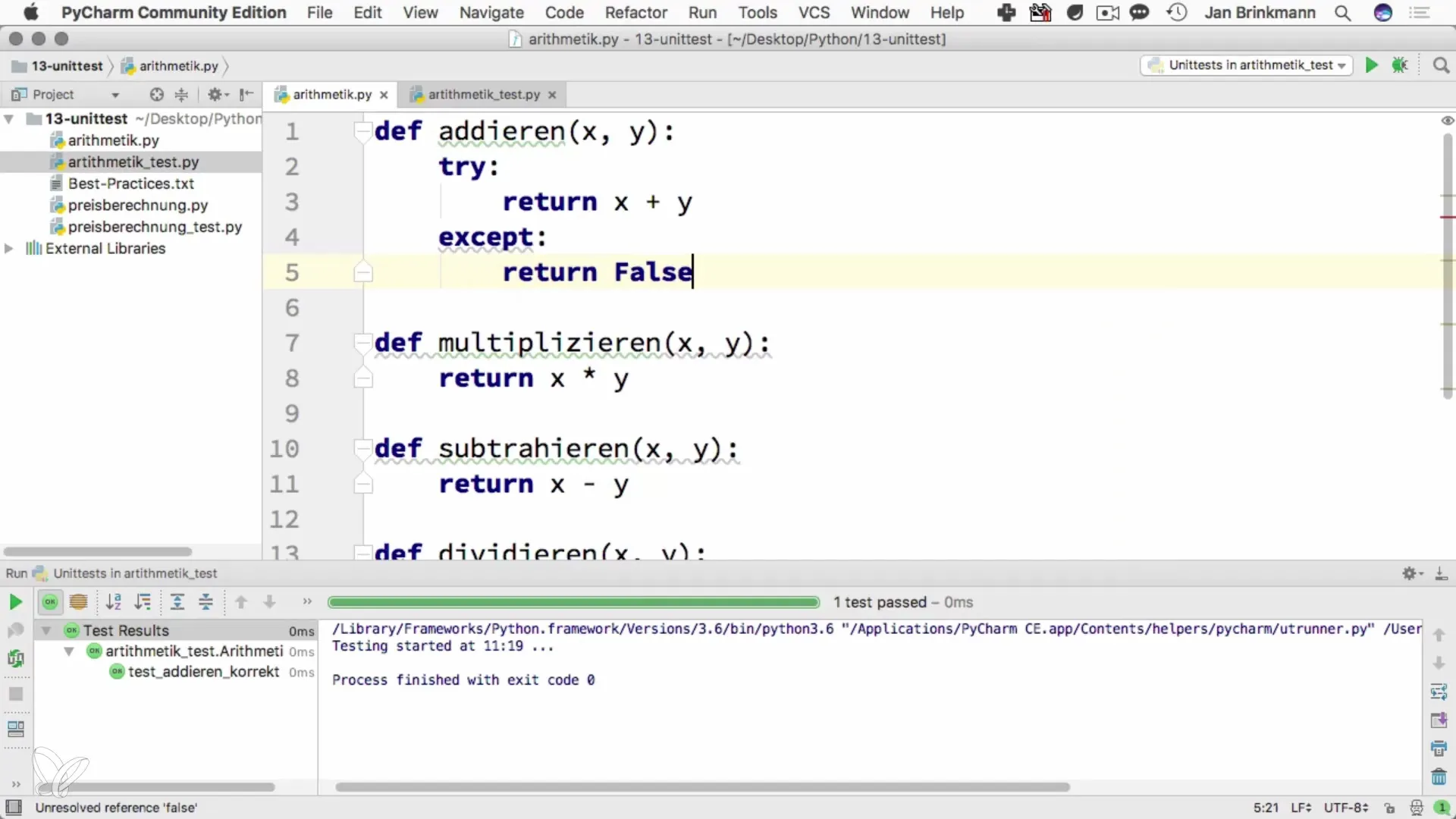
Testing Specific Conditions
You should not only test whether your functions deliver the correct result, but also whether they can handle unexpected inputs. Assertions provide you with this capability.
For example, you can ensure that when None is input as a value, an error is raised instead of returning an empty result. This contributes to the reliability of your code and ensures that user errors do not go undetected.
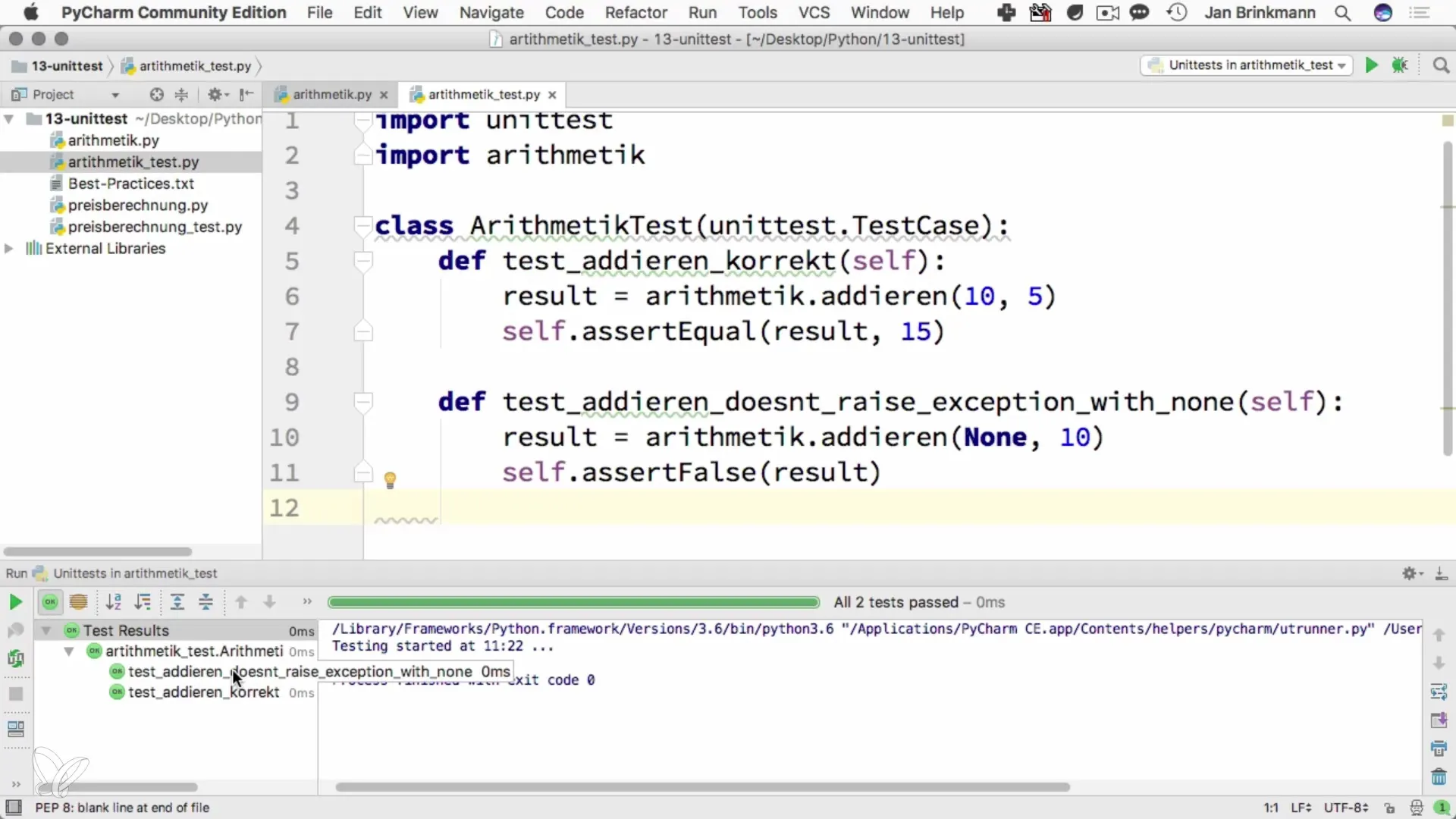
Summary – How to Use Assertions Effectively in Python
Assertions are a valuable tool for any developer who wants to ensure that their code works. By using unittest in conjunction with assertions, you can test your software faster and more efficiently. By writing robust tests, you make your code more resilient to errors, which not only improves user experience but also enhances the maintainability of your application.
Frequently Asked Questions
How do I use assertions in Python?By using the assert keyword followed by a condition that should be true.
What are assertions useful for?They help identify errors early by checking conditions during program execution.
Can I use assertions to test exceptions?Yes, you can use assertions along with try/except statements to ensure that your functions handle errors as expected.
Are assertions part of the unit testing framework in Python?Yes, assertions are a central component of the unittest module in Python, which facilitates testing code.
Do I need to test all possible errors in my code?It makes sense to test common inputs and error conditions to ensure the robustness of your code.


